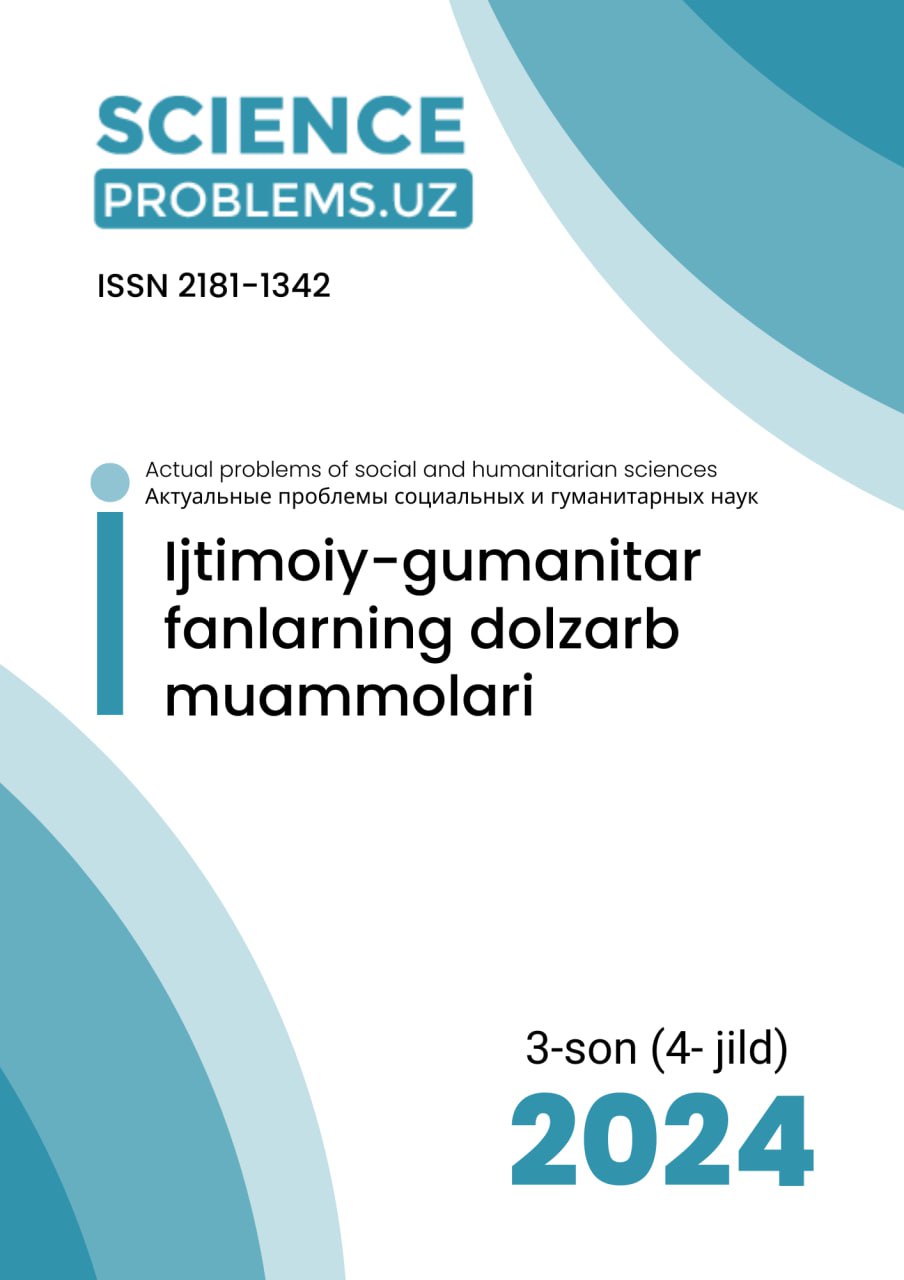ВЛИЯНИЕ ЦИФРОВИЗАЦИИ ЭКОНОМИКИ НА ИНКЛЮЗИВНЫЙ РОСТ ГОСУДАРСТВА
Kalit so'zlar
https://doi.org/10.47390/SPR1342V4I3Y2024N15Kalit so'zlar
цифровизация экономики, инклюзивный рост, цифровое неравенство, развитие квалификаций, развитие инфраструктуры, инновации.Annotasiya
В данной статье исследуется влияние цифровизации экономики на инклюзивный рост государства. Основное внимание уделено анализу проблем цифрового неравенства, необходимости развития навыков, защиты данных и улучшения инфраструктуры. Предложены рекомендации для государственных органов, бизнеса и общества по стимулированию инклюзивного роста через цифровую трансформацию.
Manbalar
Autor, D. H. (2015). Why are there still so many jobs? The history and future of workplace automation. Journal of Economic Perspectives, 29(3), 3-30.
Brynjolfsson, E., & McAfee, A. (2014). The second machine age: Work, progress, and prosperity in a time of brilliant technologies. WW Norton & Company.
Van Dijk, J. A. (2020). The digital divide. Polity Press.
Ragnedda, M., & Muschert, G. W. (Eds.). (2013). The digital divide: The Internet and social inequality in international perspective. Routledge.
Mazzucato, M. (2018). The value of everything: Making and taking in the global economy. Public Affairs.
Lööf, H., Nabavi, P., & Cook, G. (2019). Innovation and globalisation: A review of firm-level surveys. Research Policy, 48(9), 103823.
Acemoglu, D., & Autor, D. (2011). Skills, tasks and technologies: Implications for employment and earnings. Handbook of Labor Economics, 4, 1043-1171.
Goldin, C., & Katz, L. F. (2009). The race between education and technology. Belknap Press.








